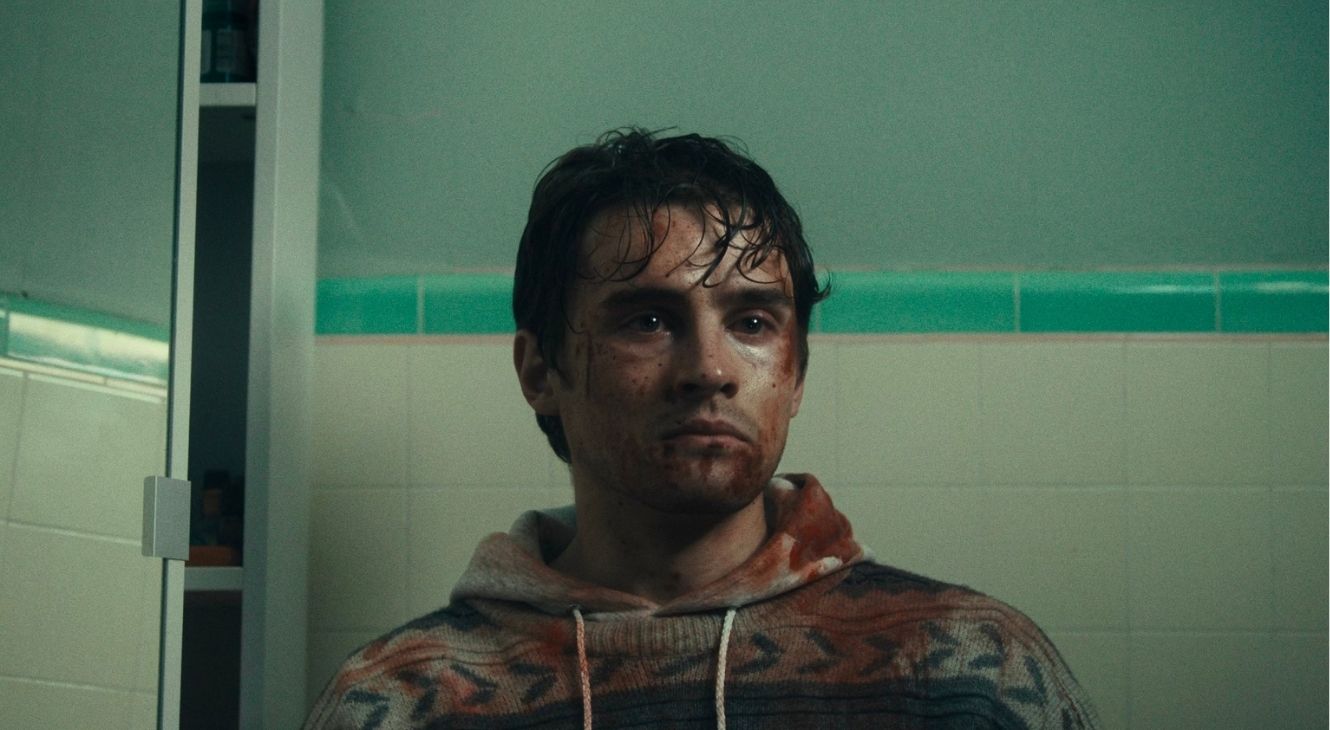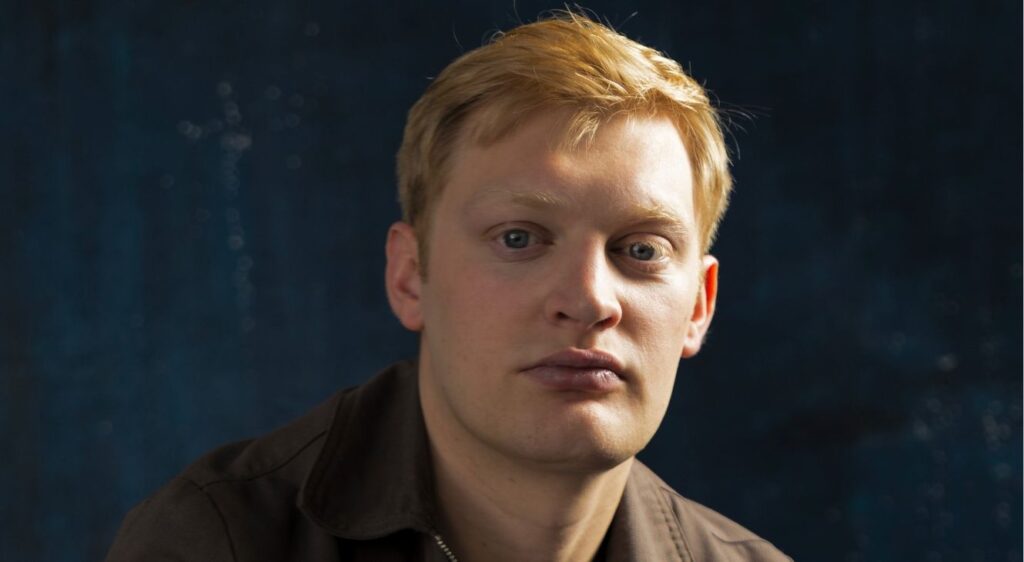In Curry Barker’s feature directorial debut, Obsession, we follow Bear (Michael Johnston), an awkward young man who has been harboring a crush on Nikki (Inde Navarrette) for, basically, forever. On the cusp of her departure from town, Bear hopes to confess his feelings. Expectedly, he fails to do so, and it looks like he is going to lose his chance forever. That is, until he makes a wish that changes the course of their lives, and not for the better.
For anyone who has ever wished for their crush to like them, Obsession is a cautionary tale for those pursuing love. In this film, Barker has crafted an incredibly tight, tension-riddled journey that will have viewers on the edge of their seats. And when they aren’t on edge, he hopes that people will walk away asking questions and wondering what they themselves would do if in a similar situation.
We spoke to writer/director Curry Barker ahead of the world premiere of Obsession at the Toronto International Film Festival. Throughout the course of our discussion, we discussed the impacts of low-budget filmmaking on the writing and filming process, finding the perfect Bear to amplify the moral ambiguity the film dances around, and how Barker’s experience in comedy impacts his approach to horror.
BUT WHY THO: What accommodations did you have to make to capture everything you wanted on film for Obsession while staying within the budget?
CURRY BARKER: That’s a great question. I write things very low-budget in the first place. I come from doing short films for $0, and my last movie was $800. And really, working with what I have, cutting corners in any way possible, just to achieve the things I want to.
I wrote this thinking that it would be hard to achieve some of the things that I want to do. For the most part, this is definitely the most money I’ve ever had for anything, by far. So, it was really easy for me to achieve most of it; obviously, the really gory things and some of the set pieces were harder than I’m used to.
BUT WHY THO: Correct me if I’m wrong, but everything was done practically?
CURRY BARKER: Yes.
BUT WHY THO: I assumed that one particular scene in Obsession was difficult to achieve within a budget because of the number of different stages that you probably had to do in the process.
CURRY BARKER: Yeah, it’s really interesting because it’s still the same muscles of figuring out how to do…it’s like being creative behind the scenes. How can we do this with the money that we have? And how can we achieve it? It’s not how they would do it. It’s still figuring out how to do it with what we have, and that’s really fun for me to try and figure those things out.
BUT WHY THO: Regarding FX stuff, I was curious about the budget, in terms of how much time you had to workshop and how far you could stretch to workshop, because I know that some people will have anywhere from a couple of hours to several weeks to be able to figure out how to accomplish things within that practical space.
CURRY BARKER: A lot of prep went into everything that me and my DP Taylor [Clemons did]. We shot everything digitally before we even showed up. We have 3D scanning software. We would scan [things] and put them in a little video game, so we knew every shot of the movie before we showed up on set. But there were things that we definitely didn’t get to test out until the day, which is so nerve-wracking, but that’s the nature of what we were doing.
BUT WHY THO: What is your editing process like? Is that something you think of while you’re writing, or does it come to mind while you’re shooting?
CURRY BARKER: I am editing by the time I’m writing the scene. I’ve edited every film I’ve ever done, and I have very much an editor brain. I think it helps a lot on set, because I know, like, Oh, I’m going to cut to this, and it allows you to be very intentional about the coverage that you’re getting, instead of just getting every single angle and then figuring it out in the cut. I already know what I’m going to cut to, not just when we show up to set, but when I write it, to be honest. I’m always thinking about that.
BUT WHY THO: And it ties into also just working with the lower budget, right? You have to think that way if you’re thinking in terms of the materials you have, the resources you have, just because of timing and all that.
CURRY BARKER: Definitely that, and that’s probably where it comes from, is like me just being forced to think that way over the years.
Bringing on someone who could balance moral ambiguity as Bear was essential for Curry Barker in Obsession.

BUT WHY THO: In terms of collaborating with the actors, more specifically, Michael [Johnston], in terms of playing around with Bear and sort of the moral ambiguity of the situation. What was it like, first to create the character without his input, and then going in and sort of workshopping it with him?
CURRY BARKER: It was really interesting because I knew that going into it, we needed to cast someone who could kind of play sinister. [He’s] a very gray character as far as protagonists usually go. We knew from the get-go when we were casting that we needed to find someone who could play that well, and Michael does it really well and subtly, and he played both the innocent awkwardness and also the sinisterness later very well.
BUT WHY THO: I’m curious to know what people think about Bear because his character rides that fine line so well.
CURRY BARKER: I like to make the audience ask themselves, ‘What would they do in that situation?’ and kind of point a mirror at the audience sometimes. But I also don’t like to tell the audience how they’re supposed to feel, but almost present it and let the audience decide for themselves what’s right and what’s wrong, and that’s kind of the fun part about it.
BUT WHY THO: Switching to the character Nikki, when creating the character and then directing the performance, what tweaks or adjustments were made to balance the heightened nature of the situation while keeping things grounded in reality?
CURRY BARKER: The thing that I really like to do is ground the world as much as possible, and I wanted there to be a little bit of ambiguity around whether magic is real and [have people ask] what is actually going on here. This is a possession movie, but it’s a very different type of possession movie. She’s not possessed by a demon. She’s almost just possessed by her own desires and wants.
So, you get to play with some of those tropes, but you don’t want to teeter too much towards like she’s a demon, you know? I think I achieved what I wanted to. I don’t think I would have wanted to go any further than I did with her.
BUT WHY THO: There are many humorous beats in Obsession that are also designed to unnerve people. And so a broader question that I have is, how does your comedic background and just comedy in general influence your approach to horror?
CURRY BARKER: I think it’s the same muscles. I try to approach everything as not taking it seriously, and when you write that way, when you approach a script in the way of nothing has to be taken very seriously, it opens up this world of being able to write whatever you want. The character could say this, or the character could do that, and maybe it would be a little silly, and that might get a laugh.
I’m not restraining myself, and also just trying to be honest. I try to write very honest characters, and sometimes, in the context of what we’ve learned horror is, you might be like, ‘That’s funny,‘ or ‘That’s inappropriate’ for a horror movie. You don’t usually see that, but I like to write very honest responses to things that end up getting a laugh, and sometimes I didn’t even design for it to be funny.
So, yeah, I think they’re similar muscles when you’re trying to scare someone and trying to make someone laugh. Laughing is evoked when you shock someone. It’s like reversing expectations and going the way you didn’t think the joke was going, which makes someone laugh. And the same thing with horror is kind of, how can you shock someone into it going somewhere that you didn’t think it was going? It’s really the same thing.
BUT WHY THO: And similarly, it’s tied into reading the room, right? You have to read a person to understand, okay, what’s working, what’s not working, regardless of what genre it lies in.
CURRY BARKER: Yeah, and then, honestly, it’s not always by design. I can’t lie and say that every laugh that is going to be in Obsession is like, ‘Yeah, I did that on purpose. I wanted you to laugh there.’ No, sometimes I’m pleasantly surprised. I’m like, oh, that was interesting. It happens in all of my films. I think it’s just the way I write. There’s always a laugh that I didn’t intend.
BUT WHY THO: In all of the chaos, what did you learn about yourself and your process while working on Obsession?
CURRY BARKER: I’ve learned so much. This process has been so different than what I’m used to, and I’ve learned how to communicate my vision to so many more people than I usually have to, in a good way, that’s allowed me to learn how to collaborate with way more people in a way that I think is going to be super beneficial for me moving forward.
BUT WHY THO: Lastly, what do you hope people take away from Obsession? Aside from a healthy fear of wish making.
CURRY BARKER: I hope that people have conversations after the movie about what they would do in a situation like that. There’s very clearly a wrong [committed] in this movie. I hope that people relate to this movie through the relationship, the characters, and the youthful nature of [Obsession].







